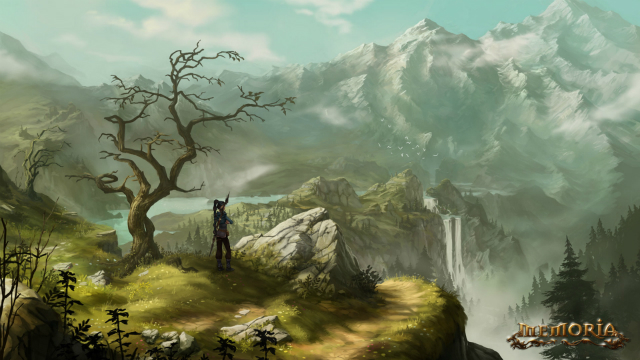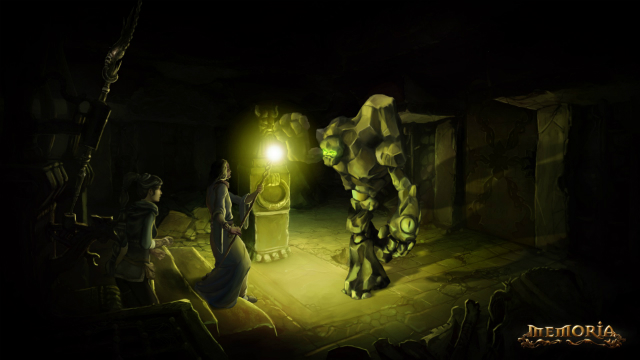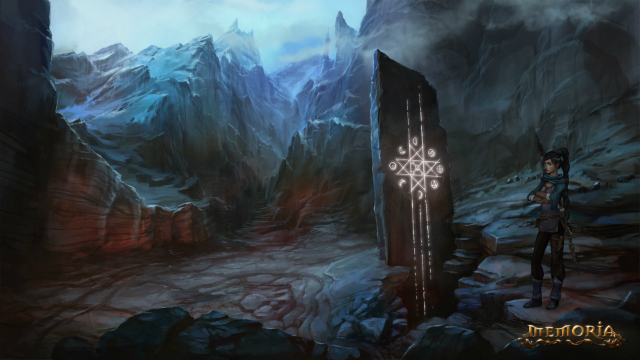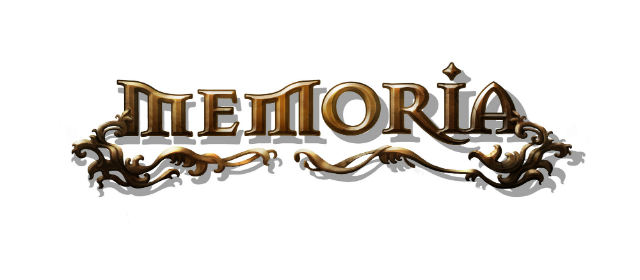When Tim Schafer stood up for the little guys last year, everyone celebrated. ‘This chap is making a point and click!’ We all clapped like seals and chirped, ‘they don’t make those any-more!’ And so we pledged, and speculated, and waited. We’re still waiting.
Meanwhile in Hamburg a German studio by the name of Daedalic Entertainment was beavering away on Memoria, one of the most LucasArts-y adventure games I’ve seen in a long while.
Not that Daedelic only just started doing this. Oh no, the team worked on both The Whispered World and Chains of Satinav before this, showing themselves as a stout supporter of the genre while the rest of the world seemingly turned a blind eye. I’d certainly not encountered their work, in spite of the fact that I do enjoy a spot of pointing and indeed clicking from time to time.

Aside from TellTale Games, Europe has been a regular support for this niche when you think about it, but it’s often gotten painfully abstract in recent years. Machinarium and Somorost are quaint, but frequently obscurely so. Memoria is not like these games. Memoria has an inventory, item combining, voice acting, and magic.
It also has those great old school hand drawn close ups that LucasArts games had. The ones that made you go ‘hellooooah! That’s a bit grim’, Ren & Stimpy style.
I jest, Memoria is gorgeous.
When I draw such open comparisons to LucasArts I feel a need to pen some likely expectations in; Memoria is not a comedy. That’s not to say this isn’t a funny game, a few moments in this preview certainly made me titter, but Memoria’s laughs are born more from dry wit and sarcastic grins, it’s not aiming to conjure up boisterous belly laughs from questionable item use.

So yes, this is classic point and click territory. You have an inventory, you can combine things in your inventory, you can try and use items on everything, and there’s loads of dialogue to discover in doing so. Some dialogue even pokes fun at such OCD click-ery, as one character pointed out that using an alcohol soaked bandage on a statue was just plain ill-informed. Curse my Sam & Max training…
Memoria also has magic. Different characters have different magic, and its use is integral to solving puzzles.
The first dude I controlled was able to destroy and repair items and the environment through his mind, meaning that a glass bottle was not limited to its purpose as a reciprocal and, once broken, it was not an irreversible pile of dangerous shards. Indeed I had to break the glass in order to reform it around another item that would not have fit inside through traditional means. This magic essentially doubles the potential purpose of every item.

The second character I controlled was a girl who gained a possession power before too long. This power let her flick lights on and off in the ancient ruins and also take command of ancient guardians, using their brute strength to achieve her goals. To demo this ability the game trapped me in a room, but I was able to control guardians outside by peeking through holes. It was up to me to activate the Mouse Trap-like series of events that led to my freedom. Trial and error prevailed, and I escaped.
What the magic manages to do is quite delicious, and in both cases is nicely subverting to the typical pacing of the genre. Boy’s magic means you must assess things in both broken and unbroken states, and how either could be applied. Lass’ magic means that while she can be stationary, her puzzle solving hand can be applied to other parts of the environment, and not just things her own size. The element of this persistent items also lends environments a more context sensitive nature. Ultimately it’s all very familiar, but it feels more interesting than a series of trying to find the hole for each inventory item.
The game also takes in mind recent additions to the point and click. Press the space bar and every interactible object willl appear, while tapping the book in your inventory will give you a clue as to how to progress. Only a clue, Memoria will never spell things out for you.

Memoria is just a wonderful surprise. It appealed to my sense of genre nostalgia while being confident in its own identity. The script was amusing, the ideas appealing, and even in these early stages the narrative took time to entertain the characters more sombre sides. The puzzling was logical, but in a magic led, fantastic way, and I felt compelled to learn more about Memoria’s world.
Kickstarter and Tim Shafer may be to thank for the point and click’s higher profile over the last year, but if it’s a genre that you do truly care about then keep an eye on Memoria. If the game can uphold a quality that’s half as good as how it starts, then this could be something really rather lovely.





